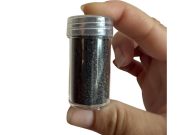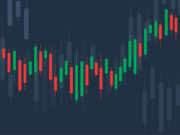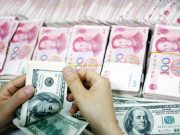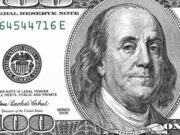We can all see that the US relies heavily on consumption—which has been the case for years—and revenue from the retail sector plays a vital role in determining the state of the economy.
Inflation and rising interest rates in recent years have certainly affected growth in the retail sector, and overall sentiment regarding retail stocks has been mostly tepid among investors.
However, US retail sales increased by 0.7% in July. With inflation starting to settle and the holiday season soon approaching, there’s an argument to be made for investing in undervalued retail stocks. The ones I’ll cover today could also be considered passive income stocks due to their very lucrative dividend payouts.
With plenty of reasons to be optimistic about retail stocks, analysts think they have the potential to yield up to 50% in total returns by 2025, easily surpassing index returns…
Home Depot (HD)
Home Depot (HD) is a compelling choice among undervalued retail stocks, poised for an upward breakout. Despite a predicted decline of 2% in sales and 5% in comparable sales for 2023, HD maintains impressive financial stability, boasting a huge amount of free cash flow. This financial strength allows flexibility for investments, share buybacks, and dividends, as evident in HD’s recently authorized $15 billion share repurchase program. HD remains bullish on expanding its market share within the extensive retail market, and with ample resources for investments, it has strong long-term growth potential.
HD is up year-to-date by 4.39% and is trading around the middle of its 52-week high-low range. With a 0.95 beta score, which indicates safety from broader market volatility, HD has a positive 20/200 day SMA (simple moving average), an operating free cash flow of $12.75 billion, and a remarkable ROE (return on equity) of 2,065%. For its Q2 2023 earnings call, HD reported EPS of $4.65 per share vs. $4.44 per share as expected by analysts, a 4.68% surprise; it also beat analysts on revenue estimates by 1.63%. For the current fiscal quarter, HD is projected to post $37.6 billion in sales at $3.77 per share, with a 3-5 EPS growth rate of 13.5%. HD has an annual dividend yield of 2.54%, a quarterly payout of $2.09 ($8.39/year) per share, and a 51% payout ratio. With a 10-day average volume of 2.58 million shares, HD has a median price target of $350, with a high of $384 and a low of $296; this could lead to a 16.5% price increase.
[stock_market_widget type=”accordion” template=”extended” color=”#5679FF” assets=”HD” start_expanded=”true” display_currency_symbol=”true” api=”yf”]
Target (TGT)
Target (TGT), another prominent retailer, has encountered challenges, with a 5.4% year-over-year decline in comparable store sales for Q2 2023. Despite this setback, though, there are notable bright spots. In Q2, TGT also achieved a 27% gross margin, marking a 550 basis point improvement. As inflation eases, sustained margin enhancement is anticipated. Additionally, with the holiday season on the horizon, 2023’s second half is expected to yield positive results, potentially driving TGT upward from its undervalued position. TGT‘s ambitious $4 to $5 billion investment plan for 2023, focused on enhancing the guest experience, remodeling existing stores, and diversifying its brand portfolio, is positioned to yield favorable outcomes. TGT also works well as an excellent income stock with its handsome dividend.
TGT is currently down year-to-date by 16.27%, is trading near the very bottom of its existing 52-week range, carries a 1.01 beta, has a PEG (price/earnings to growth) ratio of 0.93x, and has an operating free cash flow of $7.46 billion. TGT, for its Q2 earnings call, reported EPS of $1.80 per share vs. $1.42 per share as expected by analysts, a 26.85% win. During the same period, TGT also reported year-over-year growth in net income (+356.28%), EPS (+361.54%), net profit margin (+381.43%), and operating income (+254.99%). For the current quarter, TGT is projected to post $26.5 billion in sales at $2.02 per share, with a 3-5 year EPS growth rate of 5.6%. With a 3.53% annual dividend yield, TGT has a quarterly payout of $1.10 ($4.40/year) per share and a 59.62% payout ratio. Having a 10-day average volume of 3.23 million shares, TGT has a median price target of $142.80, with a high of $184 and a low of $120; this indicates the potential for a price jump of over 47% from its current trading position.
[stock_market_widget type=”accordion” template=”extended” color=”#5679FF” assets=”TGT” start_expanded=”true” display_currency_symbol=”true” api=”yf”]
Best Buy (BBY)
Last but certainly not least is Best Buy (BBY), and it’s worth considering adding to your portfolio as another undervalued retailer. BBY has maintained stability in the past year and boasts an appealing forward P/E ratio of 11x. Projections suggest BBY stock could bring total returns ranging from 30% to 40% in the next two years. BBY’s outlook anticipates a turning point in tech demand, with growth expected to surge due to natural upgrade and replacement cycles. This suggests a positive shift away from sales declines, and given BBY’s valuation and current trading position, there’s undoubtedly room for growth. Like its peers on the list, there’s an attractive dividend to be had by holding a piece of BBY.
Currently down year-to-date by 8.44%, BBY is trading around the bottom end of its existing 52-week range, has a 1.33x PEG ratio, a positive ROE of 45%, and a reasonably low D/E (debt to equity) figure of 40.92%. BBY carries a TTM (trailing twelve-month) free cash flow of $1.44 billion. BBY, for its Q2 2023 earnings call, reported EPS of $1.22 per share vs. $1.07 per share as predicted by analysts (a 13.35% win); it also beat revenue estimates, albeit slightly, by a 0.69% margin. For the current quarter, BBY is projected to report sales of $10 billion at $1.24 per share, with a 3-5 year EPS growth rate of 8%. BBY has a 5.01% annual dividend yield, a quarterly payout of 92 cents ($3.68/year) per share, and a 62.07% payout ratio. With a 10-day average volume of 2.19 million shares, BBY has a median price target of $81, with a high of $91 and a low of $70; this indicates the potential for a nearly 25% increase from its current price.
[stock_market_widget type=”accordion” template=”extended” color=”#5679FF” assets=”BBY” start_expanded=”true” display_currency_symbol=”true” api=”yf”]












